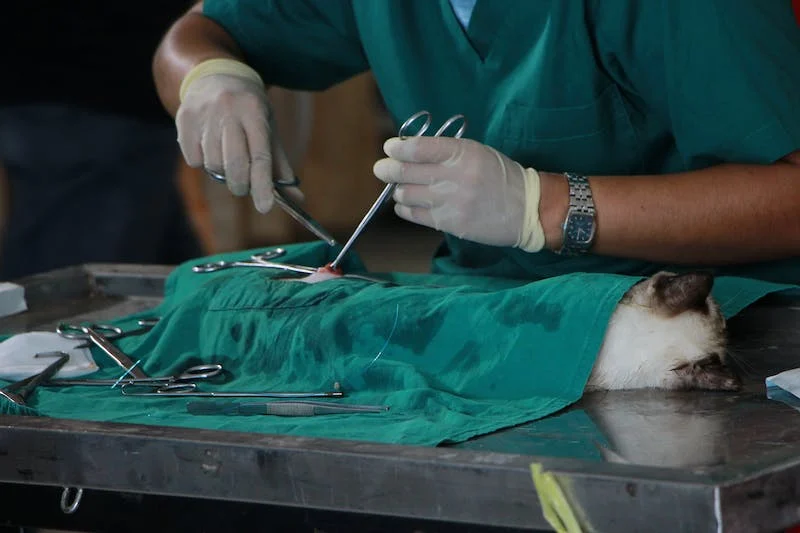Advertisements
Which university is best for medicine in Africa? Search no further, today, we will unveil the list of 10 best universities in Africaa to study medicine. Our list will also disclose to you the best countries to study medicine in Africa because as we make mention of the schools, we will also mention the country it is situated on and then discuss more on how you will get started.
Whether you are looking for the best medical schools in Africa for international students or best medical schools in West Africa and the entire of Africa, we’ve compiled the best list for you to make appropriate decisions in becoming a doctor in Africa.
Honestly, medicine is one of the most difficult field of study for most students, for a medical student to understand the teachings and probably become a medical doctor in the future, one needs to obtain this wonderful knowledge from the best hands. We simple care about you and your future decisions. We want the best for you and don’t want you to get into the wrong hands when seeking for admission into the best medical schools in Africa.
The type of doctor’s training carried out by the schools mentioned in this post, satisfy the need for the best possible ways to have the best medical doctors from Africa to the whole world. Aspiring medical students who might want to go to countries in other continent other than Africa should understand that they can possibly get the best training from African owned medical schools.
However, due to the rise in the number of people who want to study medicine in countries like; Canada, UK, US, Australia and lots more, the best possible way to achieve that is scholarship programs. It is pertinent to note that such programs are highly competitive and if you’re not selected, you may consider falling back at medical universities in Africa.
Top 10 Best Universities In Africa To Study Medicine
1. University Of Cape Town
Aside being one of the best Medical university in South Africa, University of Cape town is a community of exceptionally talented students, teachers and researchers – and a wide range of professional, administrative support and service staff – all of whom are committed to help change this world for the better. We encourage one another to work hard, not only to earn degrees or public recognition, but also to be leaders in this increasingly changing world.
Advertisements
The University of Cape Town is located at Cape Town, South Africa. Established in 1829 as the South African College, it was granted full university status in 1918, making it the oldest university in South Africa and the oldest university in Sub-Saharan Africa in continuous operation.
2. University of Ibadan
This is the oldest university in Nigeria, with the best hands in teaching medical students and handling other medical related activities with expertise.
Established in 1948, the University of Ibadan, UI as it is fondly referred to, is the first University in Nigeria. Until 1962 when it became a full-fledged independent University, it was a College of the University of London in a special relationship scheme.
The University, which took off with academic programs in Arts, Science and Medicine, is now a comprehensive citadel of learning with academic programs in sixteen Faculties namely, Arts, Science, Basic Medical Sciences, Clinical Sciences, Agriculture, the Social Sciences, Education, Veterinary Medicine, Pharmacy, Technology, Law, Public Health, Dentistry, Economics, Renewable Natural Resources and Environmental Design and Management.
The Faculties of the Basic Medical Sciences, Clinical Sciences, Public Health and Dentistry are organized as a College of Medicine.
3. Mansoura University
The faculty of medicine was founded in 1962 as a branch of Cairo University. In 1972, a presidential decree (article number 49 in the constitution) announced the establishment of the University under the name “East Delta University”. Later on, its name was changed to Mansoura University in 1973. Mansoura University is the sixth university to be founded in Egypt. Its campus occupies an area of approximately 300 acres from the southwest side of Mansoura. It includes the following faculties:
Faculties of Medicine – Dentistry – Pharmacy – Engineering – Agriculture – Commerce – Law – Science – Education – Specific Education – Arts – Computers and Information – Nursing – Veterinary Medicine – Physical Education – Early Childhood Education – Tourism and Hotels – Fine Arts.
as well as other student services centers like “The Administration of the students’ General Affairs”, the dormitories, and other specializing units that serve inside and outside the campus simultaneously.
This is in addition to the premises occupied by the university off campus faculties such as:
- The Faculty of Kindergarten and Early Childhood Education located on Ahmed Maher Street
- The Faculty of Specific Education in Mansoura and its two branches in Mit Ghamr and Minyet El-Nasr
- The Faculty of Tourism and Hotels
You can also find a tremendous service center for students that meets all their needs, a library, a social club, a modern kitchen for staff members and employees, and a newly equipped hospital for students.
4. Addis Ababa University
Addis Ababa University (AAU), which was established in 1950 as the University College of Addis Ababa (UCAA), is the oldest and the largest higher learning and research institution in Ethiopia. Since its inception, the University has been the leading center in teaching-learning, research and community services.
Beginning with enrollment capacity of 33 students in 1950, AAU now has 47,610 students (29,872 undergraduate, 15,398 Master’s and 2,340 PhD students) and 8,709 staff (3,110 academics, 4,346 admin support staff and 1253 health Professionals). In its 14 campuses, the University runs 70 undergraduate and 293 graduate programs (72 PhD and 221 Masters), and various specializations in Health Sciences.
Over 222,000 students have graduated from AAU since its establishment.
5. Makerere University
Established in 1922 as a humble technical school, Makerere University is one of the oldest and most prestigious Universities in Africa. In January of that year, the school, which was later renamed Uganda Technical College, opened its doors to 14 day students who began studying Carpentry, Building and Mechanics.
The College soon began offering various other courses in Medical Care, Agriculture , Veterinary Sciences and Teacher Training. It expanded over the years to become a Center for Higher Education in East Africa in 1935. In 1937, the College started developing into an institution of higher education, offering post-school certificate courses.
In 1949, it became a University College affiliated to the University College of London, offering courses leading to the general degrees of its then mother institution.
With the establishment of the University of East Africa in June 29, 1963, the special relationship with the University of London came to a close and degrees of the University of East Africa were instituted.
6. The University Of Ghana
The University of Ghana, the premier university in Ghana, was founded as the University College of the Gold Coast by Ordinance on August 11, 1948 for the purpose of providing and promoting university education, learning and research.
As a University poised to distinguish itself in the area of research to make an impact at the national and international level, the University launched a Strategic Plan in 2014. The strategic plan (2014-2024) is intended to consolidate the gains made from the review of the University’s mission and practices and situate these within the context of a very dynamic environment of higher education in Ghana and beyond.
7. The University of Nairobi
The University of Nairobi, a body corporate established by an Act of Parliament Cap 210 of the Laws of Kenya is the pioneer institution of University education in Kenya and the region.
The only institution of higher learning in Kenya for a long time, the University of Nairobi responded to the national regional and Africa’s high level manpower training needs by developing and evolving strong, diversified academic programs and specializations in sciences, applied sciences, technology, humanities, social sciences and the arts. To date, the range of programs offered number approximately two hundred.
Through module II (continuing education) programs, invaluable opportunity has been opened to hundreds of Kenyans and non-Kenyans, on a paying basis, who meet university admission requirements, but who have not been able to access university education due to restricted intake into the regular programs that is determined by limited resource allocation by Government.
8. University of Nigeria Nsukka
The University of Nigeria, commonly referred to as UNN, is a federal university located in Nsukka, Enugu State, Eastern part of Nigeria. Founded by Nnamdi Azikiwe in 1955 and formally opened on 7 October 1960, the University of Nigeria has three campuses in Enugu State– Nsukka, Enugu, and Ituku-Ozalla.
The University of Nigeria is the first full-fledged indigenous and first autonomous university in Nigeria, modeled upon the American educational system. It was the first land-grant university in Africa and one of the five most reputed universities in Nigeria. The university has 17 Faculties and 102 academic departments. The university offers 108 undergraduate programs and 211 postgraduate programs.
The university celebrated its 50th anniversary in October 2010, and would have celebrated its 60th anniversary in October, 2020 save for the COVID-19 pandemic.
9. University of Botswana
The University of Botswana, popularly known as UB, was established in 1982 as the first institution of higher education in Botswana.
The university has three campuses: one in the capital city Gaborone, one in Francistown, and another in Maun. The university is divided into six faculties: Business, Education, Engineering, Humanities, Science and Social Sciences and the Sir Ketumile Masire Teaching Hospital.
10. University of Malawi
The University of Malawi – the mother university in Malawi – was founded in 1964. Teaching started on 29th September 1965 at the newly established campus which used to be an Asian Secondary School in Blantyre. Only 90 students were enrolled. By 1967, the then Institute of Public Administration at Mpemba, the Soche Hill College of Education, the Polytechnic, all these in Blantyre, and Bunda College of Agriculture in Lilongwe were incorporated as constituent colleges of the University of Malawi. Except Bunda College and the Polytechnic, the other colleges moved to Zomba in 1973 to form the University of Malawi campus. Kamuzu College of Nursing became the fourth constituent college in September 1979. In 1991 the College of Medicine was established in Blantyre as the fifth constituent college of the University of Malawi.
One cannot conceive of higher education in Malawi without talking about the mother of all universities – the University of Malawi. Since its establishment, the University of Malawi has been instrumental in training and developing a reliable human resource that has gone to service various sectors of society in the country and the region. The recent boom of universities in the country has partly been possible because personnel to run such universities is readily available, a huge percentage of which is University of Malawi trained. Graduates from the University of Malawi have gone to excel in other universities in the region and beyond as graduate students as well as faculty. This attests to the quality of graduates that the university churns.






